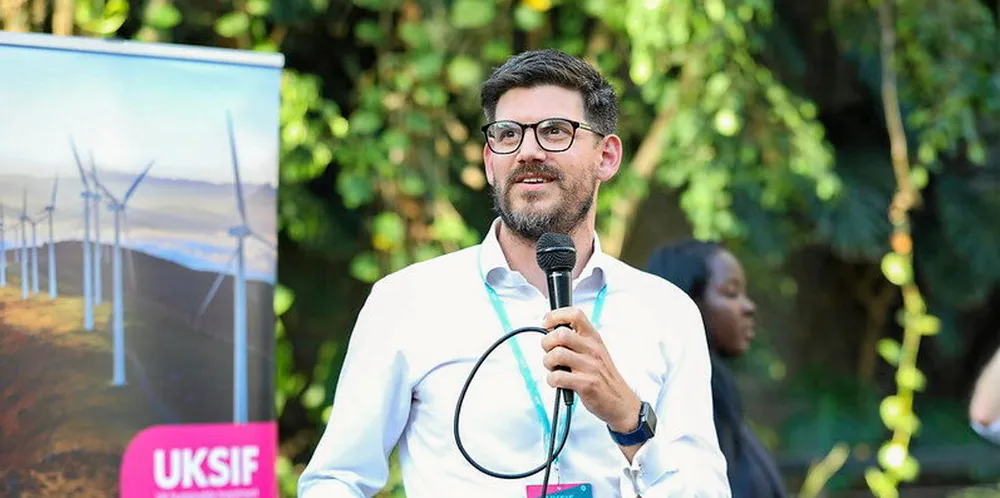UK green investment 'in great jeopardy' warns $24trn investor group
Nation could be risking exodus of clean energy investment, new study claims

The UK's ambitions of continuing to lead the energy transition are under threat, according to a study which found that two thirds of energy companies there are considering moving investments abroad.
Some 63% of UK energy companies have moved or plan to move investments out of the UK to a market more supportive of their sustainability goals, according to a new report by the UK Sustainable Investment and Finance Association (UKSIF).
The same study suggested that failure to implement more favourable policies could see the UK falter in its attempts to unlock a potential £115bn ($146m) of energy sector investment.
The entity says it groups together more than 300 members with over £19tn in global assets under management.
The UKSIF said it had polled 100 business decision makers across the UK energy sector, representing £700bn in turnover, seeking their views about the opportunities and challenges of decarbonising the UK energy system.
In all, 87% agreed that changes to UK policy are essential to make it an attractive investment location for green energy, and 81% of large UK energy companies agree that the the country is falling behind others in the competition to become the most investible market for low-carbon energy.
But 96% of surveyed energy companies said favourable energy policies would persuade them to increase investment into either existing or new sustainable and green projects in the UK, with potential investments of £115bn identified.
The UKSIF report included recommendations to foster investment and faster delivery of the UK’s future energy infrastructure, including an overhaul of planning rules to remove obstacles and reduce the time taken to bring large energy projects online and streamlining the consenting and decision-making processes.
Recommendations also included measures to reduce grid connection times and ensure adequate capacity, partly by enabling the regulator to permit greater private sector investment and allowing a greater number of low carbon projects to be invested in and connected.
The report also calls for "a reform of energy pricing mechanisms to incentivise long-term investment in UK low carbon power capacity, including the Contracts for Difference (CfD) auction process to better support UK supply chain investment".
“An international race is underway between countries to become the most investible market for green energy and, currently, the UK is taking its leading position for granted. Multiple decades of arcane and archaic planning rules are putting the UK energy transition in great jeopardy," commented James Alexander, CEO at UKSIF.
"This report highlights the abundance of private capital that is waiting to be deployed to close the funding gap and help accelerate the UK’s energy transition, with companies clearly showing that they are willing to take this investment elsewhere if policy does not evolve.
The calls echoed those of other organisations and businesses in the UK energy sector such as Energy UK, RenewableUK and The Association for Renewable Energy and Clean Technology.
“Reaching Net Zero will require an estimated five-fold increase in current investment levels by 2030 – and around two-thirds of this will come from the private sector. This will only happen if investors have the confidence and the right environment to justify committing funding to the UK over the long term," said Emma Pinchbeck, CO at Energy UK:.
“The UK can rightly point to becoming the first country in the G7 to halve its emissions, mainly driven by the way we generate our electricity. We cannot rest on past achievements however and, as it stands, the UK is forecast to have the slowest growth in low-carbon electricity generation of the world’s eight largest economies between now and the end of the decade".
Energy UK is among the organisations arguing that a more ambitious approach to Net Zero can boost the UK’s gross domestic product significantly, even as it moves beyond energy generation to the harder-to-abate sectors.
The same groups have been warning about the risk that the consumer cost of wind curtailment is in danger of soaring due to the impact of CfDs on an increasingly inadequate grid network.
Nathan Bennett, Director of Strategic Communications at RenewableUK added: “The UK’s planning system and consenting rules urgently need to be streamlined and shortened, with timeframes for decision-making set out clearly and proper resourcing provided for planning authorities. It currently takes longer to get consent for an offshore wind farm than it does to build it.
"Similarly, our electricity grid badly needs an upgrade or we’ll continue to see renewable energy projects which could be generating low cost power for billpayers held back, in many instances into the next decade.”
(Copyright)